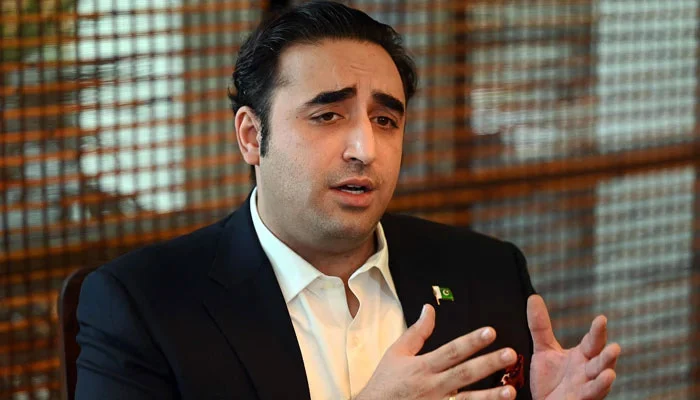With only a few days remaining before the February 8 elections, political parties’ last stages of campaigning are underway. Pakistan Peoples Party (PPP) Chairman Bilawal Bhutto-Zardari pledged on Monday to “change” Karachi if his party wins the majority of votes in the city.
Speaking at a rally at Karachi’s Shireen Jinnah Colony, Bilawal declared, “The party will change the face of Karachi in five years if it gets 20 seats [from the city].” The party is working to win over voters in the city, who will determine the fate of 22 National Assembly seats.
Throughout Pakistan’s history, Karachi has been a political hotbed during general elections and has consistently had a big impact on national politics because the parties that have gained significant representation from the megalopolis typically have a big say in who strengthens or weakens the center.
The 2018 general elections, in which the Pakistan Tehree-e-Insaf (PTI), the nation’s financial hub, emerged as the largest party, serve as a prime illustration of this.
Nonetheless, the Muttahida Qaumi Movement-Pakistan (MQM-P), which had previously considered Karachi to be its stronghold, went on to support Imran Khan’s PTI-led government as a major coalition partner. After his ouster through the vote of no confidence, MQM-P withdrew its support for the PTI and once again emerged as a significant political force.
Given that parties like the PPP, MQM-P, PTI through its independent candidates, Jamaat-e-Islami (JI), and others are fighting for the 22 seats from the metropolis, it appears that the megacity will once again play a significant role in the politics of the center.
In addition to its numerical significance, the city has political significance, as evidenced by the Pakistan Muslim League-Nawaz (PML-N) President Shehbaz Sharif’s now-cancelled attempt to run for office from Keamari’s NA-242 — a move that its “ally” MQM-P strongly opposed by fielding Mustafa Kamal from the relevant constituency.
Speaking at the rally, which passed through a number of the city’s neighborhoods, including Kharadar and Keamari, Bilawal reaffirmed the confidence the community has placed in the party.
Should they win the majority, they will make sure that the nation’s financial center’s problems are properly addressed.
On February 8, the PPP chief appealed to the public to support his party, saying, “My [PPP’s] candidates will convey the issues faced by the people in their respective constituencies to me.”
His comments coincide with the party’s allegation that it has not lived up to expectations after controlling the province for almost 15 years, particularly in light of Saturday’s rainstorm that caused urban flooding in the metropolis.
It would be interesting to observe how the political and electoral environment develops on the morning of February 9 in light of the efforts to declare victory in Karachi’s election contest.







